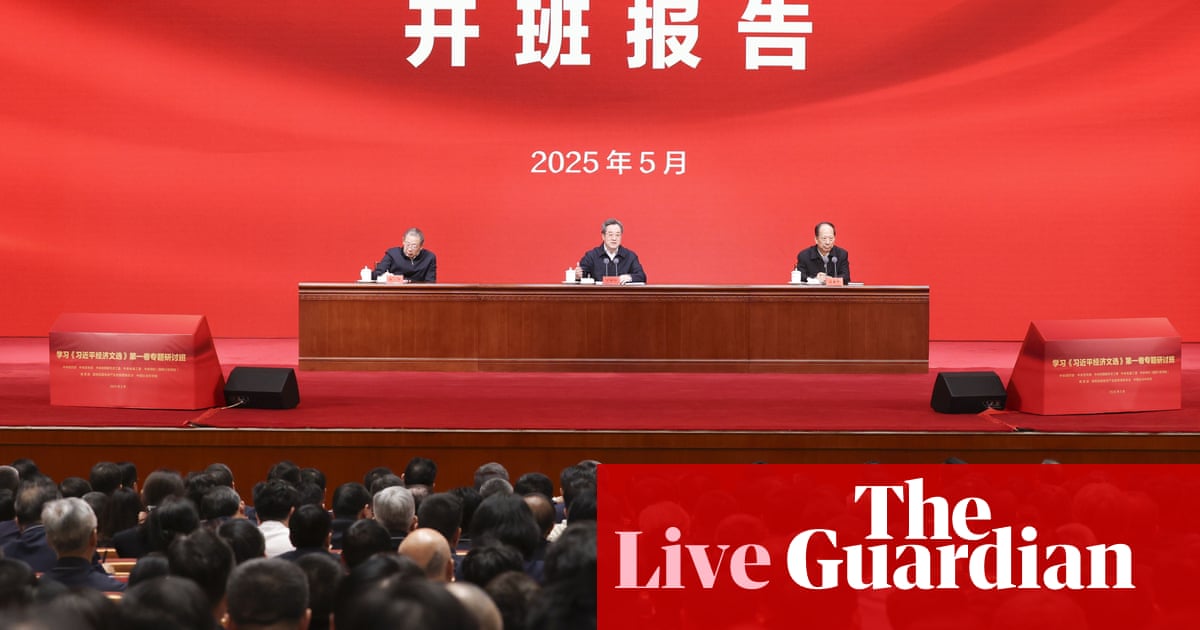Good morning, and welcome to our rolling coverage of business, the financial markets and the world economy.
China has cut interest rates, and news of trade talks between Beijing and Washington lifted Asian stocks.
The People’s Bank of China is delivering a half-point cut to the banks’ reserve requirement ratio, its benchmark interest rate, and trimming other interest rates, releasing a 1 trillion yuan into the banking system.
Pan Gongsheng, governor of the People’s Bank of China, said the move was due to “uncertainties of global economy, economic fragmentation and trade tensions, which disrupted global industrial supply chains”.
Beijing announced the measures amid a damaging trade war with the US.
After weeks of rumours over de-escalation between the two countries, markets gave a lukewarm welcome to news that top trade officials are due to meet in Geneva this weekend – the first meeting sinceDonald Trumplaunched punitive tariffs against China.
China’s vice-premierHe Lifengwill meet US treasury secretaryScott Bessenton the sidelines of meetings in Switzerland between 9 and 12 May. US trade representativeJamieson Greerwill also attend.
Japan’s Nikkei edged 0.1% lower, while Hong Kong’s Hang Seng rose by almost 0.5% and markets in Taiwan, Australia and South Korea were up between 0.1% and 0.55%. In mainland China, the Shanghai Composite rose by nearly 0.5% while the Shenzhen Composite gained 0.16%.
Stephen Innes, managing partner at SPI Asset Management, said:
European stock markets are set for a mixed open, with the UK’s FTSE 100 index seen opening slightly lower after its recent strong run while the German and French indices are expected to rise.
Traders are cautious ahead of the US Federal Reserve’s meeting tonight, where interest rates are expected to be left unchanged.
Oil prices are rising again, after yesterday’s 4% jump amid signs of higher demand in Europe and China, lower production in the US, tensions in the Middle East, a day after prices fell to a four-year low.
Brent crude is 1.1% ahead at $62.86 a barrel while US crude has risen by 1.3% to $59.86 a barrel.
The Agenda
8.30am BST: Eurozone HCOB Construction PMI for April
9.30am BST: UK S&P Global Construction PMI for April
10am BST: Eurozone retail sales for March
7pm BST: US Federal Reserve interest rate decision
